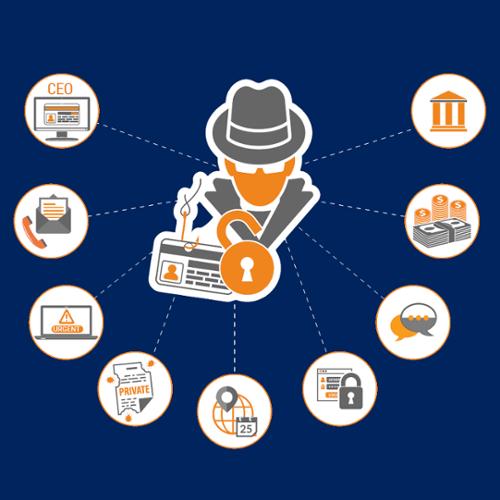CEO Business email Compromise (BEC) Fraud
CEO/BEC fraud occurs when an employee authorised to make payments is tricked into paying a fake invoice or making an unauthorised transfer out of the business account.

How does it works?
- A fraudster calls or emails posing as a high ranking figure within the company (e.g. CEO or CFO).
- They have a good knowledge about the organization.
- They require an urgent payment.
- They use language such as: ‘Confidentiality’, ‘The company trusts you’, ‘I am currently unavailable’.
- They refer to an expedited late payment, a need to solve a ‘supplier’ cash flow issue or the need to procure goods or services urgently.
- The employee is requested not to follow the regular authorisation procedures.
- Instructions on how to proceed may be given later, by a third person or via email.
- The employee transfers funds to an account controlled by the fraudster.
- Often, the request is for international payments to banks outside Europe.
What are the signs?
- Unsolicited email/phone call
- Direct contact from a senior official you are normally not in contact with
- Request for absolute confidentiality
- Pressure and a sense of urgency
- Unusual request in contradiction with internal procedures
- Threats or unusual flattery/promises of reward
What can you do?
As a Company
- Be aware of the risks and ensure that employees are informed and aware too.
- Encourage your staff to approach payment requests with caution.
- Implement internal protocols concerning payments.
- Implement a procedure to verify the legitimacy of payment requests received by email.
- Establish reporting routines for managing fraud.
- Review information posted on your company website, restrict information and show caution with regard to social media.
- Upgrade and update technical security.
- Always contact the police in cases of attempted fraud, even if you are not the victim of fraud.
As an employee
- Strictly apply the security procedures in place for payments and procurement. Do not skip any steps and do not give in to pressure.
- Always carefully check email addresses when dealing with sensitive information/money transfers.
- In case of doubt on a transfer order, consult a competent colleague.
- Never open suspicious links or attachments received by email. Be particularly careful when checking your private email on the company’s computers.
- Restrict information and show caution with regard to social media.
- Avoid sharing information on the company’s hierarchy, security or procedures.
- If you receive a suspicious email or call, always inform your IT department.
Europol

 Greek
Greek





